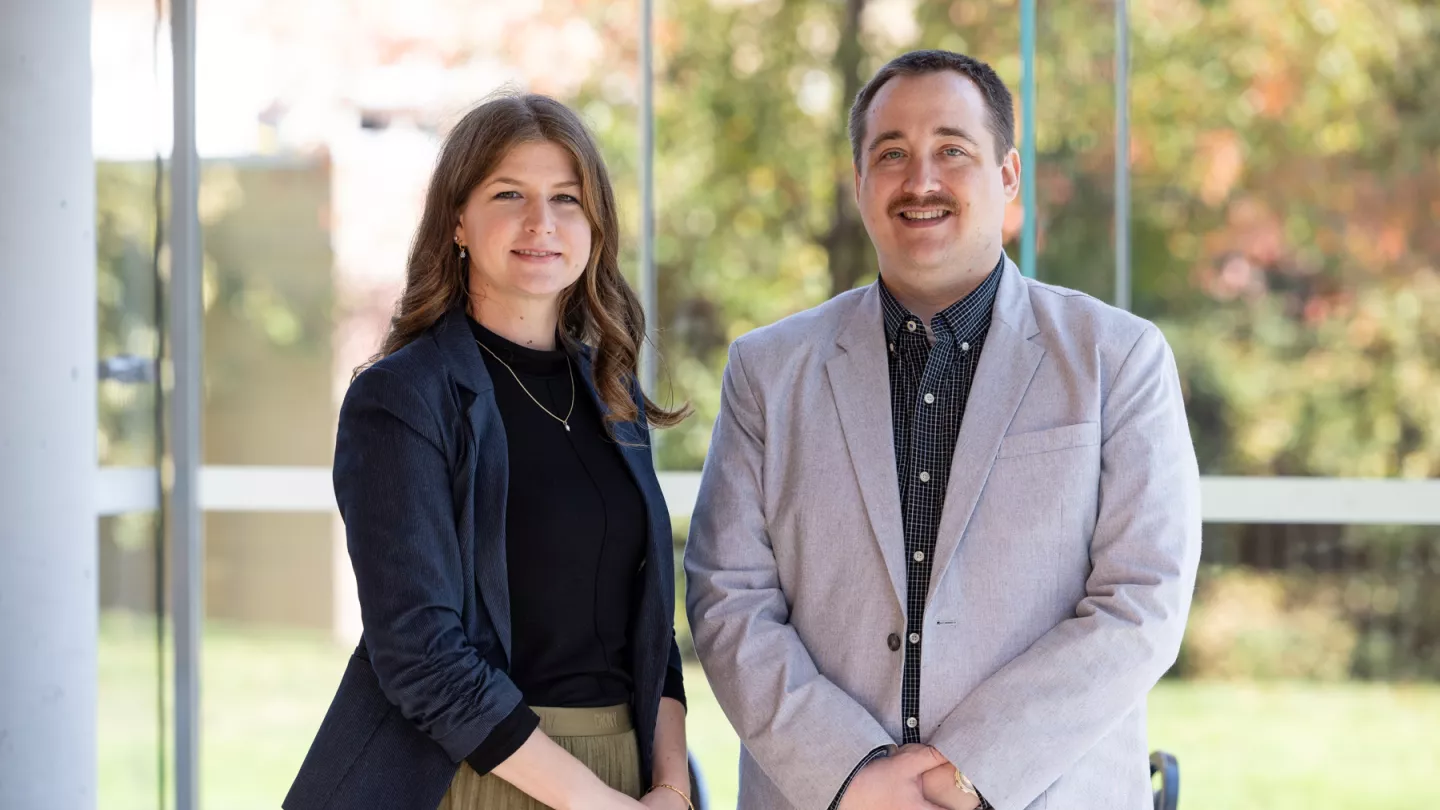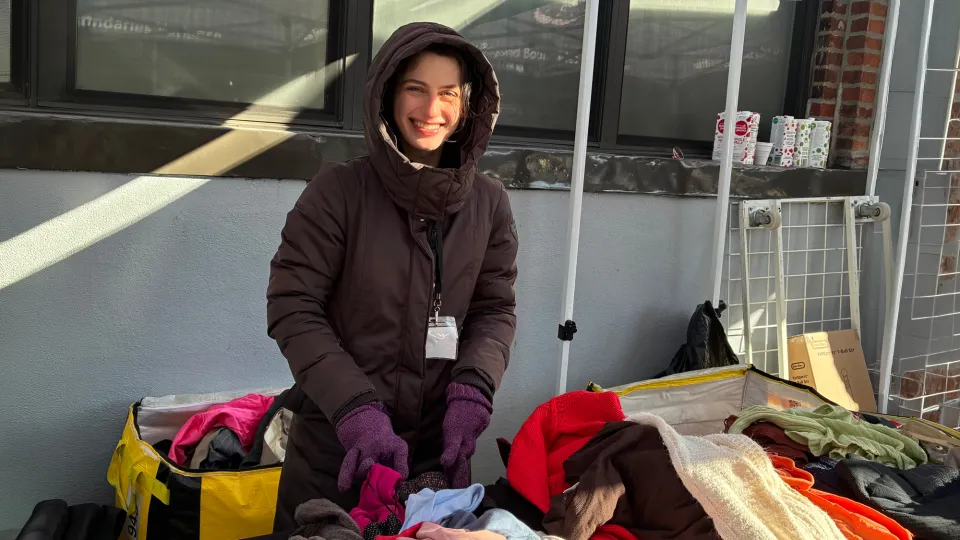Feature
Dennis Shields Postdoctoral Prizes Awarded at 20th Annual Event
November 6, 2024 (BRONX, NY)

Einstein postdoctoral fellows Ana Cicvaric, Ph.D., in the Dominick P. Purpura Department of Neuroscience, and Randall Carpenter, Ph.D., in the department of cell biology, were honored for their research excellence.
The Belfer Institute for Advanced Biomedical Studies celebrated the 20th annual Dennis Shields Postdoctoral Research Prizes on Oct. 30 during an event that honored two scientists whose research and published work exemplify excellence in their fields.
This year's winners were Randall Carpenter, Ph.D., in the department of cell biology, and Ana Cicvaric, Ph.D., in the Dominick P. Purpura Department of Neuroscience.
“Postdoctoral fellows are one of the key components of Einstein’s research success, playing a vital role in our labs and driving pioneering science,” said Anne Bresnick, Ph.D., associate dean for postdoctoral affairs and director of the Belfer Institute. “Although the Shields Prize is just one of our annual events that celebrate postdocs, it is a special opportunity to acknowledge two postdocs for their distinctive research contributions.” Dr. Bresnick is also professor of biochemistry at Einstein and associate director for cancer research training and education within the National Cancer Institute-designated Montefiore Einstein Comprehensive Cancer Center.
At the event, which was held in the LeFrak Auditorium at the Michael F. Price Center/Block Pavilion, Dr. Bresnick greeted the audience of faculty, students, staff, and postdocs. Yaron Tomer, M.D., the Marilyn and Stanley M. Katz dean at Einstein and chief academic officer at Montefiore Medicine, presented each investigator with a check for $5,000 prior to their scientific presentations.
The annual award, established in 2004, was renamed for Dennis Shields, Ph.D., in 2009. Dr. Shields was a professor of developmental and molecular biology and of anatomy and structural biology at Einstein for 30 years until his death in 2008. “It's so important that we maintain traditions such as this event,” Dr. Bresnick said. “Dennis was a true champion for postdocs, and these prizes honor his memory and the legacy he established as the first director of the Belfer Institute.”
Scientists Present Their Work
The two honorees presented their published research during the event.
Dr. Carpenter’s work was conducted in the laboratories of Maria Maryanovich, Ph.D., assistant professor of cell biology, and the late Paul Frenette, M.D., founding director and chair of the Ruth L. and David S. Gottesman Institute for Stem Cell Biology and Regenerative Medicine at Einstein. Dr. Carpenter’s research, published in August 2024 in Science, focuses on regulation of the hematopoietic stem-cell (HSC) pool by macrophages.
HSCs give rise to all the body’s blood cells. It is normal for a tiny fraction of HSCs to exit the bone marrow (where they usually reside) and enter the bloodstream, but what controls this mobilization has not been well understood. Dr. Carpenter and colleagues found that HSCs expressing high levels of the protein c-Kit on their surface physically contact macrophages and incorporate portions of macrophage membrane into their own membranes—a cell-to-cell membrane transfer process called trogocytosis. HSCs that engage in trogocytosis remain in the bone marrow.
Those findings suggest that impairing c-Kit signaling may prevent trogocytosis, leading to more HSCs being mobilized to the bloodstream, where they could be harvested to reestablish blood cell production in patients whose bone marrow or immune system is damaged or defective, such as in a variety of blood cancers.
Dr. Cicvaric’s work was conducted in the laboratory of Jelena Radulovic, M.D., Ph.D., professor in the Dominick P. Purpura Department of Neuroscience, professor of psychiatry and behavioral sciences, the Sylvia and Robert S. Olnick Chair in Neuroscience, and director of the Psychiatry Research Institute at Montefiore Einstein.
Dr. Cicvaric’s research, published in March 2024 in Nature, focuses on the role of DNA-sensing in memory formation.
Episodic memories represent our previous experiences and are crucial for shaping our identity. Previous research has mainly focused on the subset of neurons that get activated when memories are formed by expressing early immediate genes.
Dr. Cicvaric and colleagues used a learning paradigm where mice associated their environment with a noxious stimulus, forming an aversive memory. By closely examining molecular changes at different time points after learning, they identified a novel group of hippocampal neurons in which genes involved in the Toll-Like Receptor 9 (TLR9) inflammatory pathway, known for its role in DNA sensing, were strongly activated.
They showed for the first time that DNA breaks caused by learning are released from the nucleus and persist in neurons for several hours, triggering TLR9 inflammatory signaling, which in turn directs cycles of centrosome-mediated DNA damage repair. The findings demonstrate that activation of an inflammatory pathway in certain hippocampal neurons is essential for making long-lasting memories, presenting a new avenue for memory research.



